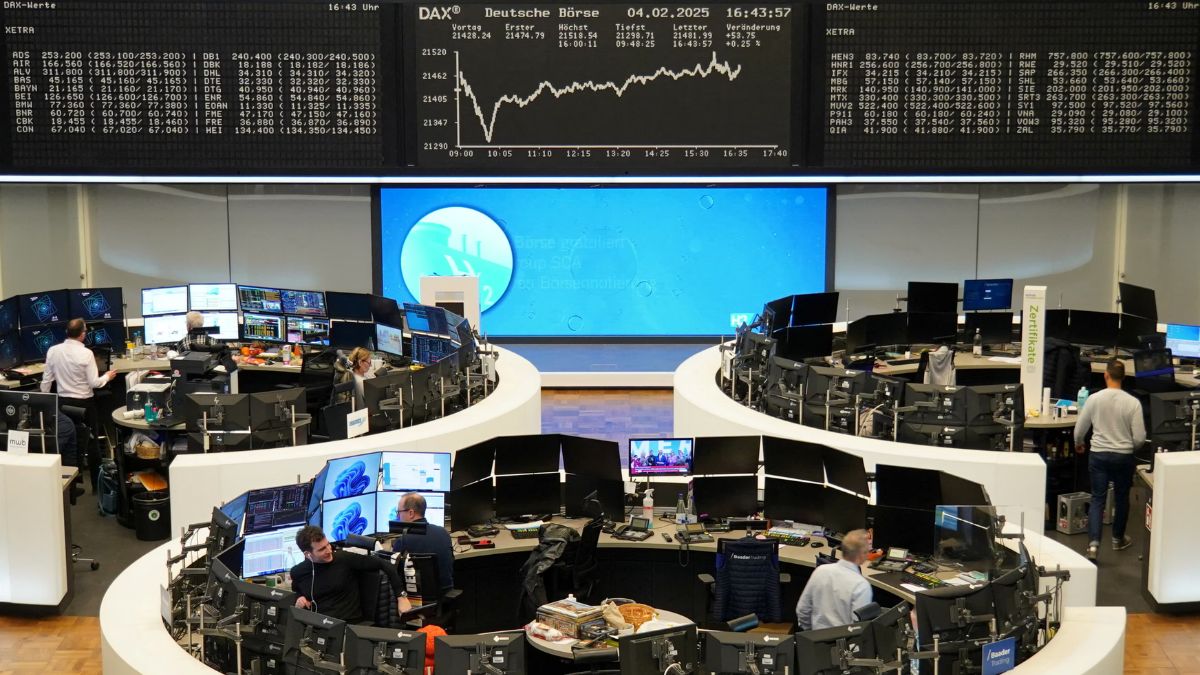European stock markets were quiet on Friday, holding their ground after a week of generally positive trading. Investors were taking a breather after a flood of company earnings and the official start of new U.S. tariffs.
By early morning, Germany’s DAX index was down 0.2%, France’s CAC 40 was up 0.4%, and the UK’s FTSE 100 was 0.2% higher. Despite Friday’s mixed moves, the main European markets are still set for solid weekly gains. The DAX is on track to rise more than 3%, the CAC 40 is up over 2%, while the FTSE 100 has lagged with a gain of just 0.4%.
Analysts noted that Europe’s earnings season is nearly complete, with around 80% of companies having reported. Sales numbers have been slightly weaker than hoped, but profits have surprised to the upside, growing by about 10% overall, a 14% jump compared to forecasts.
Company updates were lighter on Friday. Munich Re cut its 2025 insurance revenue forecast, pointing to weaker business trends and currency effects, but kept its full-year profit target. NN Group reported a steep drop in profit for the first half of the year, hurt by losses on government bonds, changes in derivative values, restructuring costs, and the sale of its Turkish business. Swiss property firm Mobimo posted a strong rise in profit, helped by gains from property revaluations and higher income from development and sales. French games publisher Asmodee Group saw first-quarter sales surge 32%, driven by a nearly 50% jump in partner-published games.
Meanwhile, the Trump administration’s new tariffs officially took effect on Thursday, with import duties as high as 50% on some regional economies. Some countries, including those in the EU, have managed to strike deals with the U.S. to reduce tariff levels. Japan’s trade negotiator said the U.S. promised to adjust overlapping tariffs to avoid double charges on certain goods.
There was also political news as Moscow confirmed Russian President Vladimir Putin would meet with U.S. President Donald Trump in the coming days, sparking hopes for progress on a Ukraine ceasefire.
In energy markets, oil prices fell again on Friday, heading for their biggest weekly loss since late June. Brent crude slipped 0.8% to $65.92 a barrel, while U.S. WTI fell 0.9% to $63.31. Both benchmarks are down 4–5% for the week. The drop comes as investors worry that the new U.S. tariffs could slow global economic growth and reduce oil demand. Prices have also been pressured by last weekend’s OPEC+ decision to fully end its largest output cuts in September, earlier than expected.


